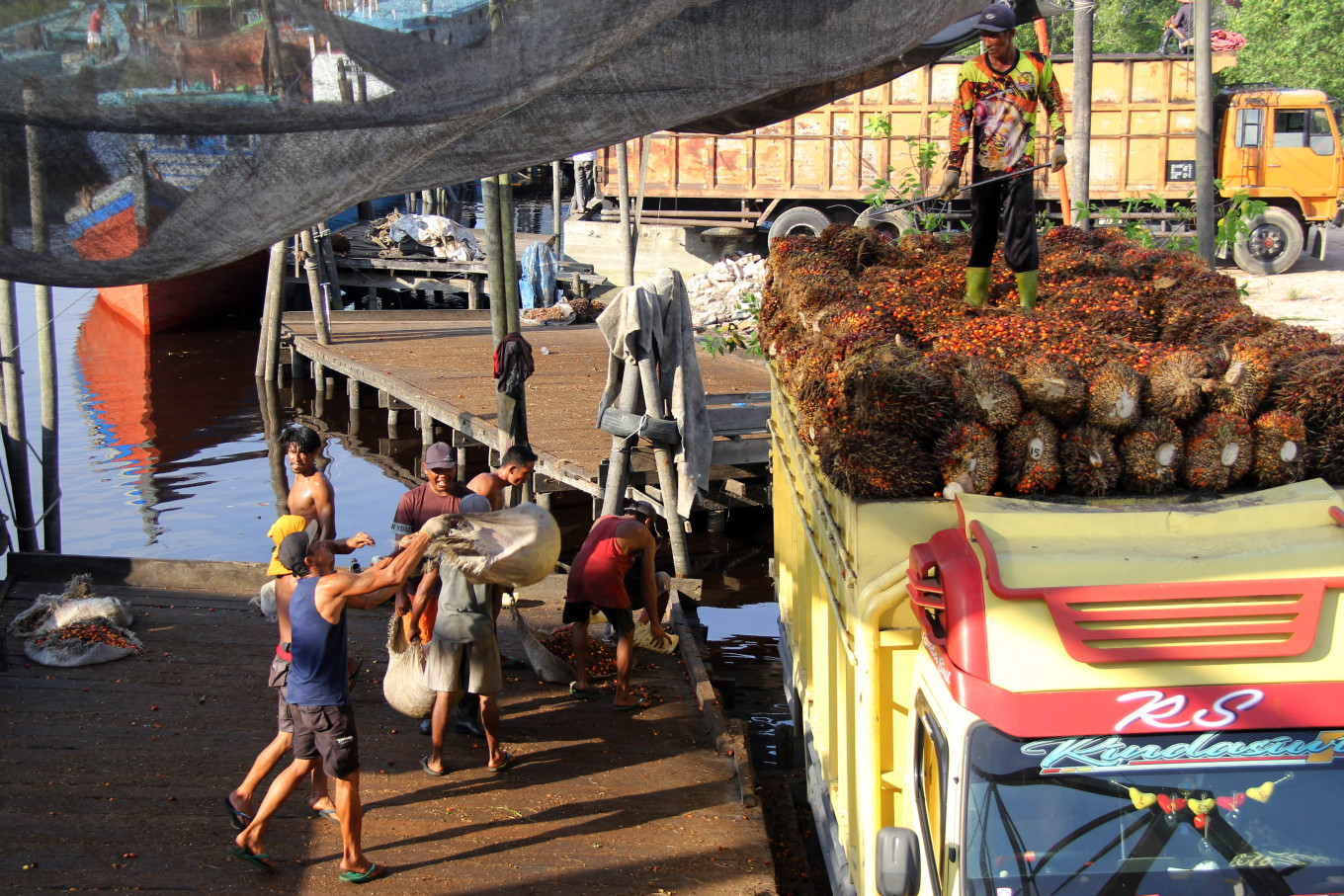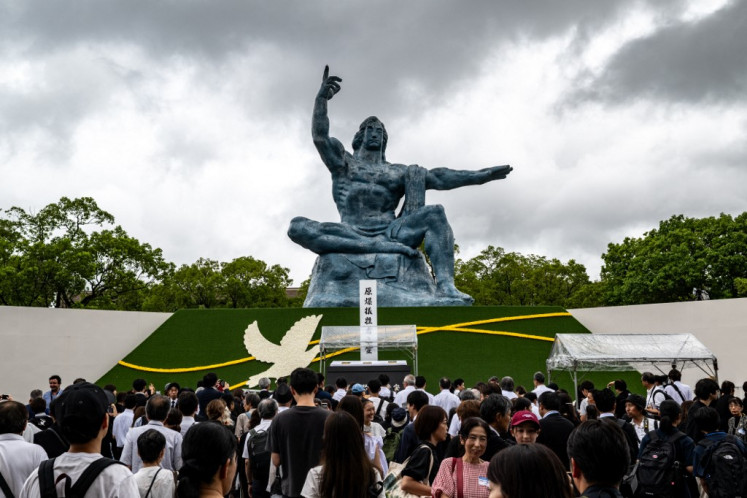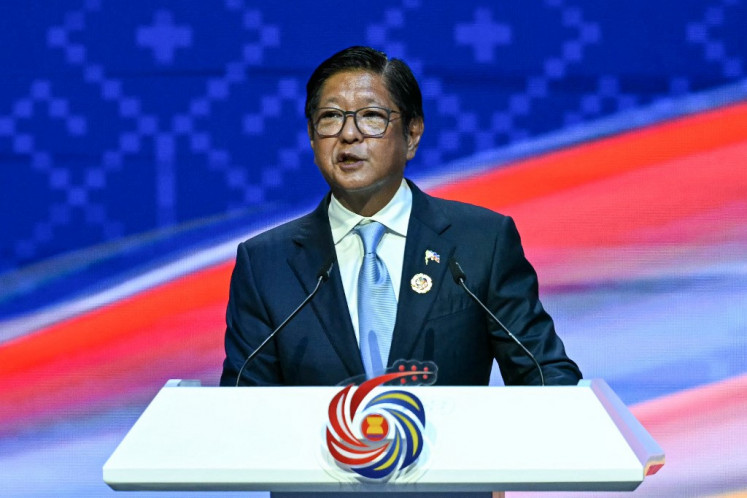Popular Reads
Top Results
Can't find what you're looking for?
View all search resultsPopular Reads
Top Results
Can't find what you're looking for?
View all search resultsPrabowo’s EU triumph
The IEU-CEPA is projected to significantly reduce import duties, with up to 80 percent of Indonesian exports to the EU set to enjoy zero tariffs within the first two years of the agreement's implementation.
Change text size
Gift Premium Articles
to Anyone
I
t is not an exaggeration to call the political agreement on the long-sought free trade pact between Indonesia and the European Union on Sunday a diplomatic victory for President Prabowo Subianto. He successfully pushed the EU to accelerate negotiations and open its market to Indonesian products it had previously criticized, such as palm oil and "dirty" nickel.
This unexpected breakthrough was largely influenced by United States President Donald Trump’s unilateral tariff war, which prompted countries and regional blocs worldwide to seek new alliances, including with those in the Indo-Pacific and ASEAN. Under Prabowo, Indonesia, the 16th largest economy globally, skillfully leveraged its strategic importance in this evolving geopolitical landscape, as evidenced in the finalization of the Indonesia-EU Comprehensive Economic Partnership Agreement (IEU-CEPA).
The Sunday agreement exemplifies how Indonesia's foreign policy can yield tangible benefits across its economy, politics and defense, directly serving national interests through effective diplomacy. However, a note of caution is warranted: We must remain vigilant against overextending our influence. An overly aggressive diplomatic posture risks inadvertently undermining the very national interests we strive to protect.
During a joint press conference with European Commission President Ursula von der Leyen, President Prabowo commended Europe as a leader in science, technology and finance, highlighting Indonesia's offering of critical resources. "We consider Europe to be very important for us; that is why we would like to see more European presence and more European participation in our economy," Prabowo stated.
Von der Leyen, in turn, announced that the EU would provide a secure and reliable supply once the deal takes effect and confirmed the European Commission's decision to implement a visa cascade for Indonesian nationals visiting the eurozone.
Both parties are now working to finalize the IEU-CEPA, which has undergone at least 19 rounds of negotiation since July 2016. A cabinet minister had previously predicted the agreement would not be reached until late 2026 or early 2027, given Indonesia's resistance to EU pressure, particularly regarding environmental protection clauses.
The deal is now expected to be finalized in September by EU Trade Commissioner Maroš Šefčovič and Indonesian Coordinating Economic Minister Airlangga Hartarto. Following this, Indonesia and the 27 EU member states will be required to ratify the agreement, an effort that will demand significant commitment from both sides to expedite the process.
For Indonesia, Foreign Minister Sugiono will need to secure swift ratification from the House of Representatives, which should be a relatively manageable task given President Prabowo’s ruling coalition controls over 80 percent of the House. Additionally, the foreign minister should instruct Indonesian ambassadors across the 27 EU member countries to intensify diplomatic efforts and encourage a speedy ratification process within those nations.
The EU is Indonesia’s fifth-largest trading partner, with bilateral trade reaching US$30.1 billion in 2024, and Indonesia recorded a trade surplus of $4.5 billion this year, up from $2.5 billion in 2023. These ties had previously faced strain due to a proposed EU import ban on products linked to deforestation, which particularly angered Indonesia as a major palm oil exporter.
The IEU-CEPA is projected to significantly reduce import duties, with up to 80 percent of Indonesian exports to the EU set to enjoy zero tariffs within the first two years of the agreement's implementation. Sectors poised to benefit include labor-intensive industries like footwear, textiles and garments, alongside palm oil, fisheries, renewable energies and electric vehicles.
This deal will bolster Indonesia’s position in international trade, building on the momentum from the Regional Comprehensive Economic Partnership (RCEP), the world's most extensive trade agreement, which came into effect in January 2022.
While the EU champions development, environmental conservation, human rights, labor rights and good governance, the IEU-CEPA’s actual ability to transform Indonesia into an economy that truly values the environment and human rights will depend on the strength and enforceability of its environmental and social provisions, and how effectively civil society concerns are addressed during its implementation.
Nevertheless, the Indonesian government deserves credit for this major diplomatic achievement.











